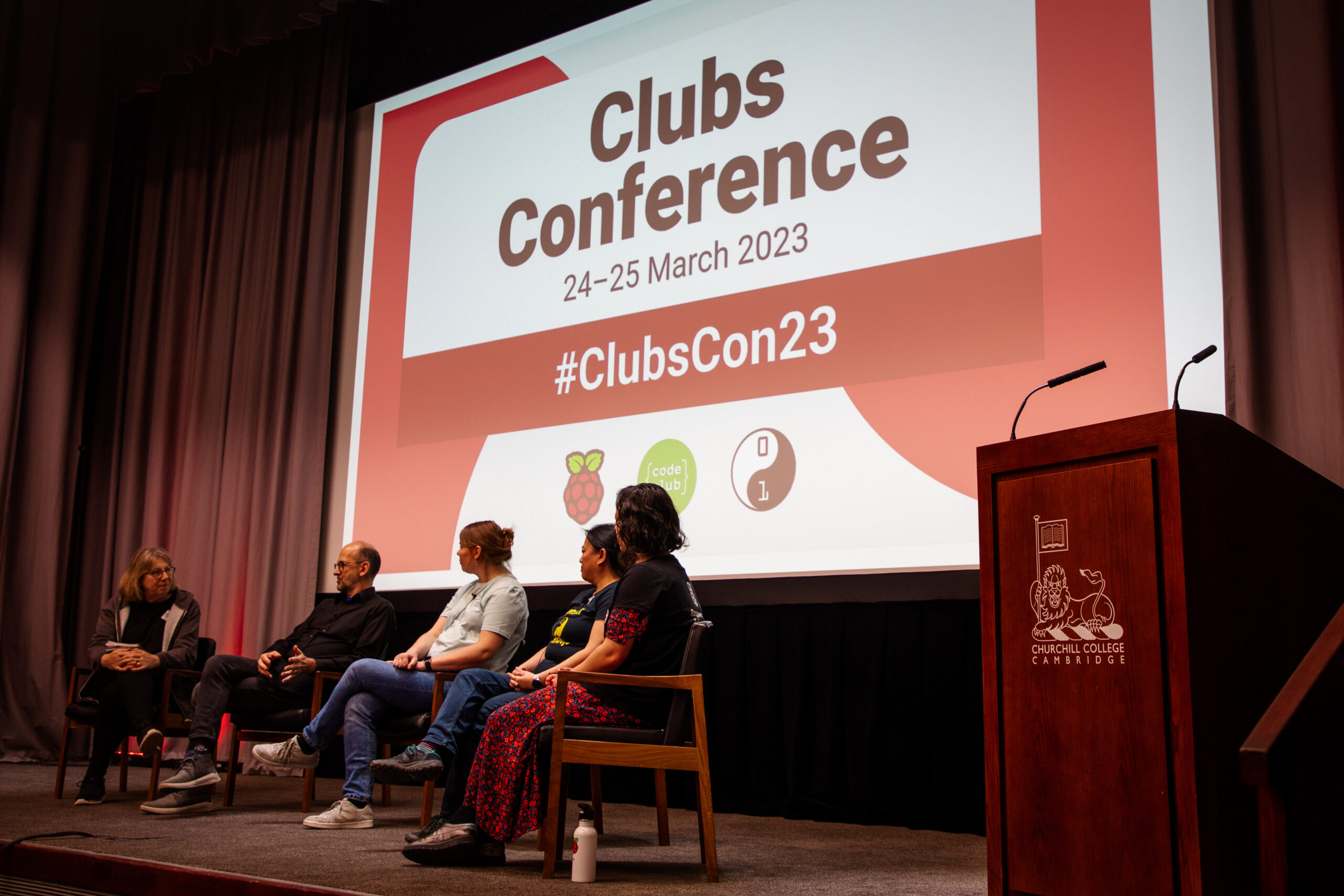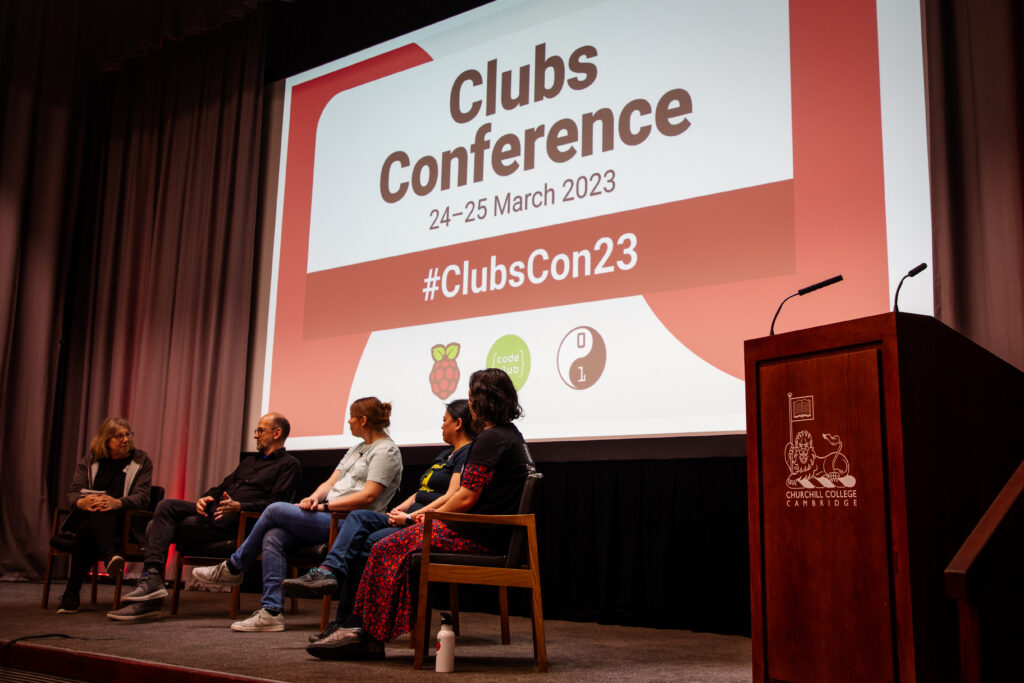
3rd April 2023
5 things we learned at #ClubsCon23
A massive thank you to all the volunteers and educators involved in CoderDojo and Code Club that attended and contributed to our first ever Clubs Conference, in Cambridge. Over the day and a half, more than 140 attendees participated in over 40 workshops, discussions, and talks. Here are five things we learned from the Conference!
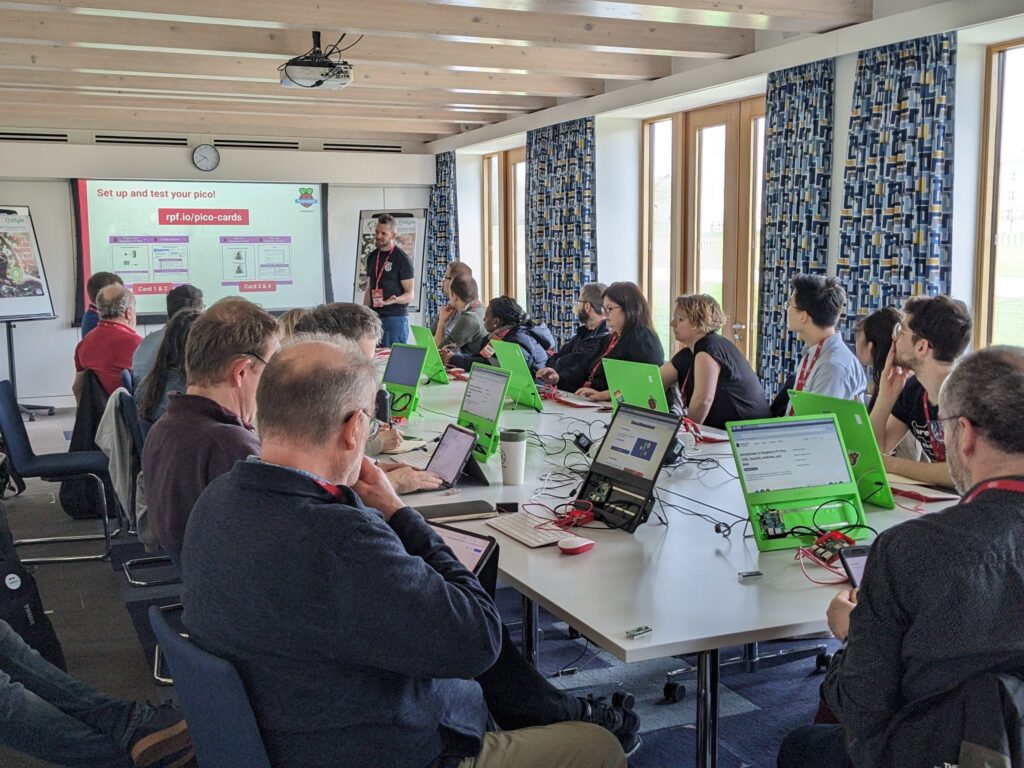
You want to know more about Machine learning and AI
From Philip Colligan’s opening speech including ChatGPT to insightful discussions and workshops, AI proved very popular! Dale shared how young people learn a lot from seeing a machine learning project doing something they didn’t expect. We also saw some great examples of resources you can use to quickly create machine learning models in your club, including those on our Projects site. Mark also shared about our exciting partnership with Deep Mind. For those in the UK who are interested in resources to introduce AI to 11-14 year olds, or to participate in an AI challenge, make sure to register your interest.
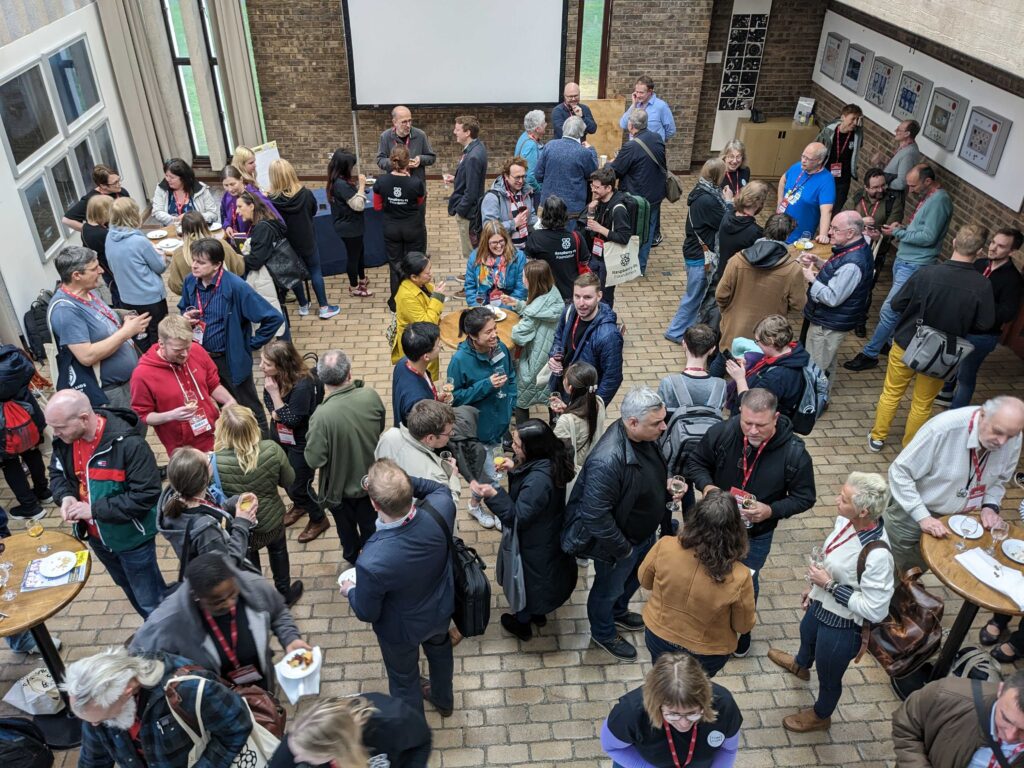
You want your clubs to be accessible and inclusive
Making sure clubs are inclusive and accessible to all young people is very important to us and the wider community. Rhoidri shared how text to speech, diction, screen masks, translators, and other assistive technologies benefit his club. We shared our guide for making your Dojo more accessible, as well as discussing how sessions can be more inclusive.
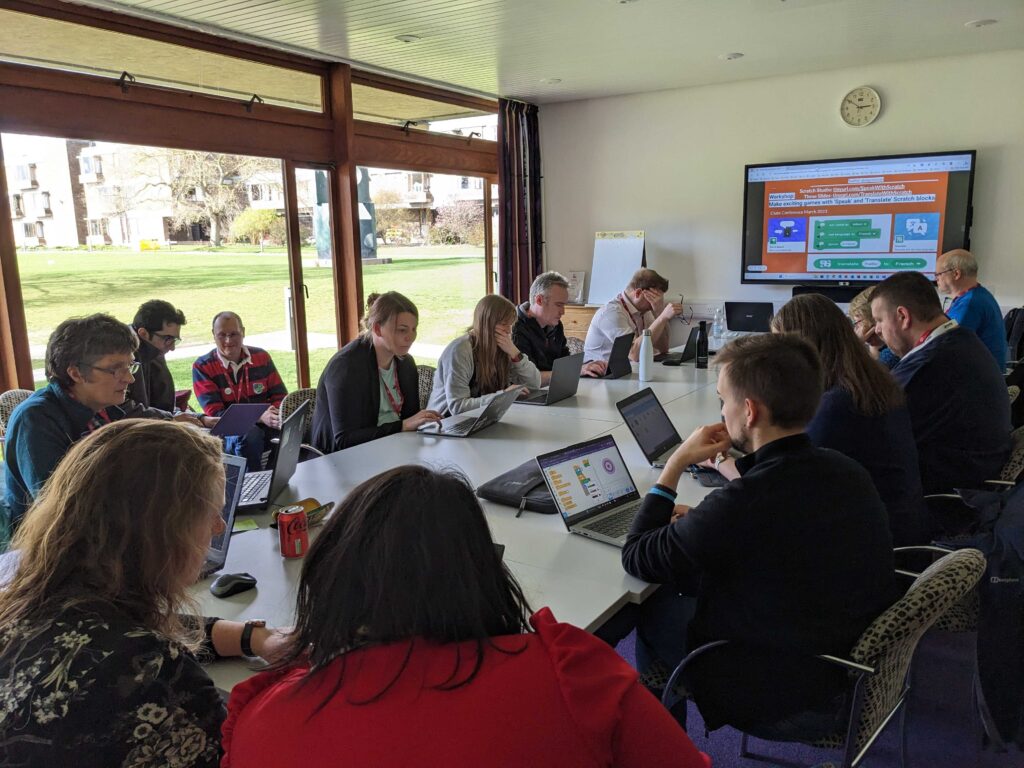
You want to engage older children
In Lisa’s discussion on keeping Ninjas engaged, we discussed physical computing and robotics as ways to engage older children. Mark’s Raspberry Pi Pico session utilised some of our resources to connect and control LEDs. Additionally, Coolest Projects was highlighted as a great way to encourage young people’s independent project making, and motivate project making across sessions. Teenagers being given the opportunity to develop skills and become youth mentors was also seen as a useful way to keep them engaged.
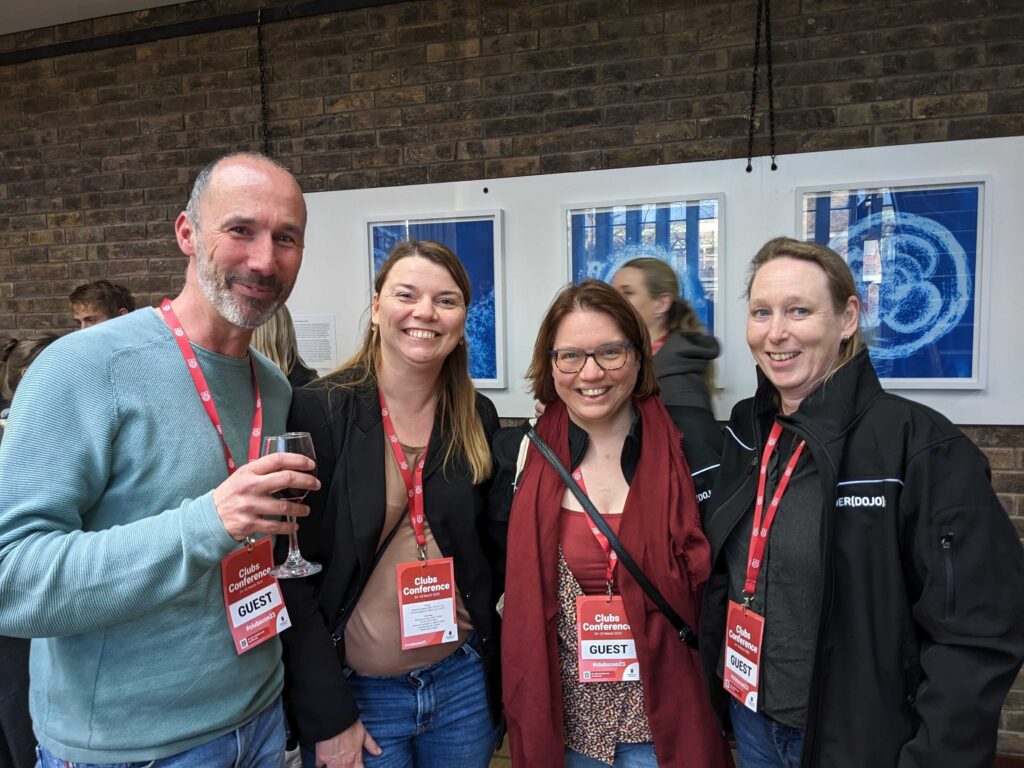
Smart phones and printable resources can make learning easier
Clubs have very different needs and resources available to them. Some volunteers have access to printers and free printing at their venue, where for others, printing is an additional cost and environmental consideration. In our discussion on resources, we considered the uses and value of short printable projects, as well as how young people who often have smartphones (or possibly tablets) available to them, could open the projects on that device beside a laptop. We also discussed how toggling between tabs and using split screens is actually a very useful skill for young people to practise in a club setting.

Connecting with other volunteers is important
During the pandemic, we as a Foundation had to pause running in-person events. Even with regular online workshops, community calls, and consultation sessions, our community embraced the opportunity to come together in-person. One volunteer shared how participating in online sessions previously made attending the Conference easier, as they were welcomed into every room by a friendly face. Another volunteer remarked that no matter what their struggles were when running the club, it was heart-warming to learn that other volunteers had similar experiences.
You can see our upcoming calls and events on our community webpage.
